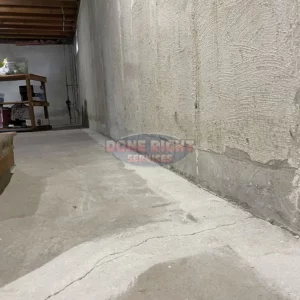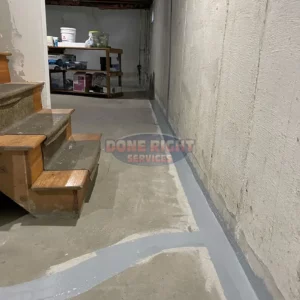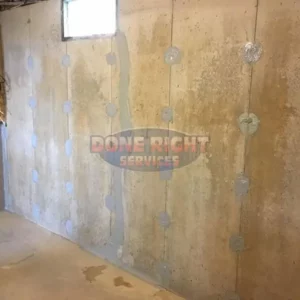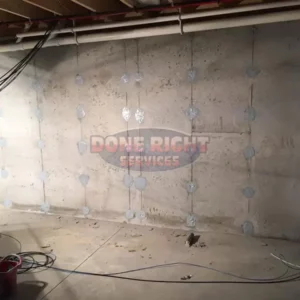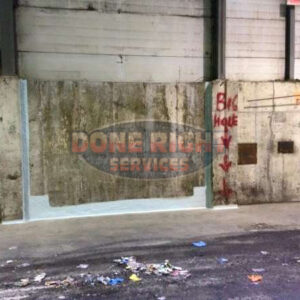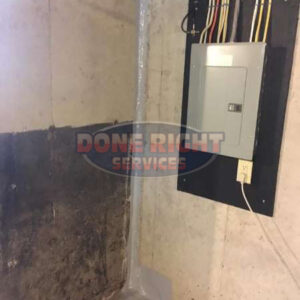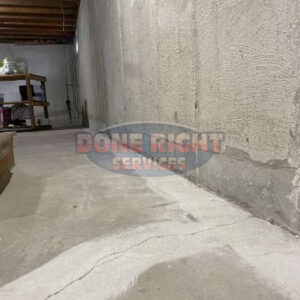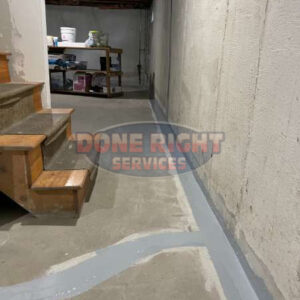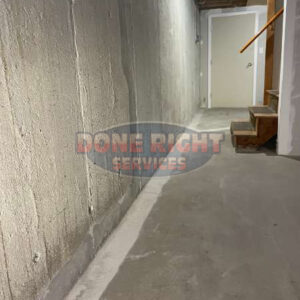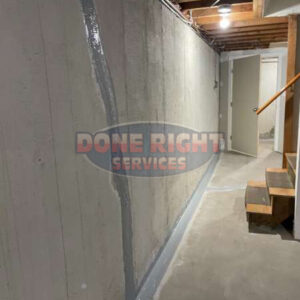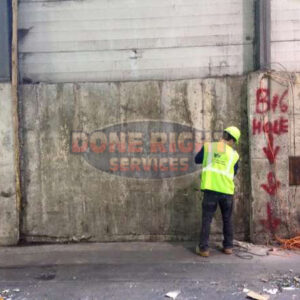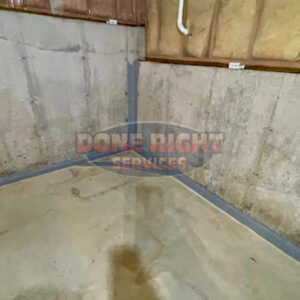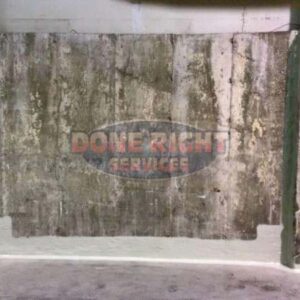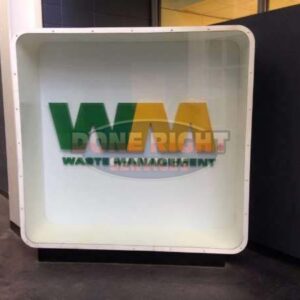Cold Joint and Cove Joint Waterproofing
in Massachusetts and New Hampshire
Professional Waterproofing Solutions to Keep Your Basement Dry
If you’ve noticed water seeping into your basement after heavy rains or damp areas forming where your foundation meets the floor, you may be dealing with cold joint or cove joint leaks. Thankfully, at Done Right Services, we specialize in cold joint waterproofingand cove joint waterproofing in Massachusetts and New Hampshire, ensuring that your home stays dry and protected year-round.

These leaks are more common than many homeowners realize, and they can lead to serious moisture issues, mold growth, and radon gas infiltration if left untreated. That’s why, instead of relying on temporary fixes, we provide long-term solutions that seal these problem areas effectively and permanently.
What Are Cold and Cove Joints?
Understanding Cold Joints
A cold joint occurs when two separate pours of concrete meet but do not fully bond together. This often happens when a new foundation is poured against an existing foundation, such as when adding an extension to a home. Since the new concrete doesn’t chemically fuse with the old concrete, a seam is created that can allow water to seep through over time.
Cold joints can also form when there is a delay in pouring concrete for a single foundation. If one section begins to set before the next is poured, the result is a weakened joint that can become a water entry point.
What Is a Cove Joint?
A cove joint is the natural seam where your basement floor meets the foundation wall. Because the concrete floor and walls are typically poured at different times, there is always a small gap at the base of the foundation. This gap can allow water to seep through, especially when groundwater pressure increases around your foundation.
While many homeowners are told they need to install an interior perimeter drainage system to manage cove joint leaks, in many cases, a proper waterproofing seal is all that is needed to fix the problem efficiently and affordably.
Why Cold and Cove Joint Waterproofing Is Essential
Ignoring water infiltration at cold and cove joints can lead to significant problems, including:
- Mold and mildew growth due to excess moisture.
- Damage to basement walls and flooring from prolonged exposure to water.
- Higher radon gas levels, as cracks and gaps allow gas to seep into the home.
- Increased humidity, leading to musty odors and poor indoor air quality.
- Potential foundation damage over time as water weakens the structure.
At Done Right Services, we take a preventative approach to waterproofing, ensuring that small leaks don’t turn into major structural issues down the line.

Our Cold Joint and Cove Joint Waterproofing Solution
We understand that no two foundation issues are exactly the same, which is why we customize our approach to each home we work on. Our waterproofing process includes:

Thorough Inspection
We identify the exact source of water entry and assess the severity of the problem.

High-Quality Sealants
We use industrial-strength waterproofing sealants that bond deeply with the concrete, creating a flexible and durable seal.

Structural Reinforcement (If Needed)
For extensive damage, we reinforce the joint to prevent future shifting or expansion.

Fully Transferable Warranty
Our work is backed by a written lifetime warranty, ensuring your peace of mind.
Unlike temporary patch jobs, our cold joint and cove joint waterproofing solutions provide a permanent fix that protects your home from further water damage.
When waste management had water in their recycling facility they called on Done Right Services.
Frequently Asked Questions
1. How do I know if I have a cold joint or cove joint leak?
If you notice water pooling along your basement floor where it meets the wall, or if damp spots appear after heavy rain, you likely have a cove or cold joint issue. A professional inspection can confirm the exact cause.
2. Can I fix a cold joint leak myself?
While some DIY products exist, they rarely provide a long-term fix. Professional-grade sealants and proper application techniques are needed to ensure the joint remains waterproof for years to come.
3. Is a sump pump necessary for cove joint waterproofing?
Not always. Many homeowners are sold on expensive interior drainage systems when a properly applied seal is all that is needed to stop water infiltration.
4. Will waterproofing my cold or cove joints prevent radon gas entry?
Yes! Properly sealing these joints helps block radon gas from seeping into your basement, improving indoor air quality.
5. How long does the waterproofing process take?
Most jobs can be completed in just one day, minimizing disruption to your home.
Contact Us for Cold and Cove Joint Waterproofing
At Done Right Services, our foundation contractors believe in providing high-quality, long-lasting waterproofing solutions that protect your home from water damage and radon gas infiltration. And with our many years of experience serving homeowners in Massachusetts and New Hampshire, we know how to tackle foundation leaks quickly and efficiently.
So if you’re dealing with water seepage at a cold joint or cove joint, don’t wait until the problem worsens. Just simply call us today at 978-808-1199 to schedule an inspection and take the first step toward a dry, protected basement.

